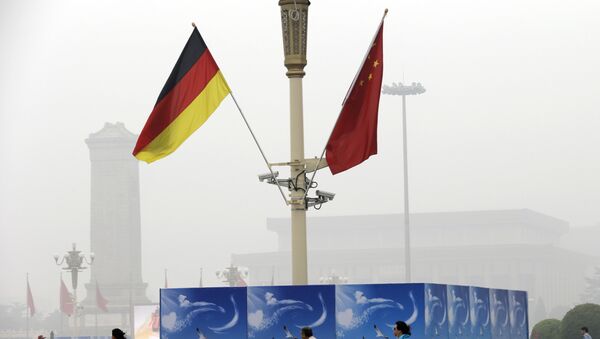The Chinese immigration authorities appear to be discriminating against Germans with Turkish-sounding names and those who have spent a long time in Turkey, according to the Association of German Chambers of Industry and Commerce (DIHK).
The DIHK has indications "that the Chinese consulate is not issuing visas to German businesspeople with Turkish-sounding names," the organization's foreign trade chief Volker Treier told the German business magazine Wirtschaftswoche on Friday.
Treier warned that the issue could affect trade relations between China and Germany. In 2016, trade turnover between the two countries was €169.9 billion ($198.2 billion), making China Germany's biggest trade partner, ahead of France.
According to Wirtschaftswoche, the Chinese consulate in Germany is rejecting visa applications from businesspeople with Turkish-sounding names and prospective tourists who have spent long periods of time in Turkey.
One reason is Germany's policy with regard to the waves of migrants who have arrived in Germany from the Middle East since 2015. The Chinese government believes Germany did not exert sufficient control over its borders during the high point of the migrant crisis in 2015, and "apparently fears that there could be terrorists or Turkish activists among visa applicants."
China has accused Uyghur activists of religious extremism and terrorism, and implemented an anti-terror crackdown. Turkey has accused Beijing of persecuting Uyghurs and offered to host Uyghur refugees from China.
In spite of these differences, in August Chinese Foreign Minister Wang Yi and his Turkish counterpart Mevlut Cavusoglu met to agree on enhanced security cooperation and anti-terrorism measures. At a joint press conference, Wang said that Cavusoglu had given an assurance that Ankara "would not permit any anti-China activities" in the country.




